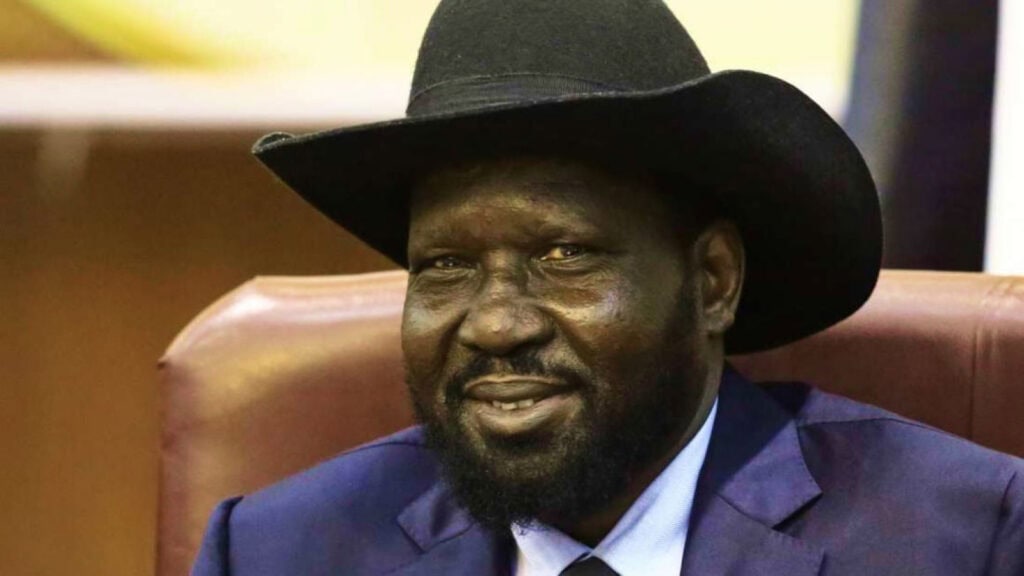The need for transparency
South Sudan’s constitution—in theory—prohibits high-ranking officials and other constitutional office holders from being involved in commercial business or receiving renumeration from any source other than the national government.[176] Article 120 on the declaration of wealth and prohibition of private business states:
- All executive and legislative constitutional office holders, Justices, and senior Civil Service officials at all levels of government shall, upon assumption of their offices, make confidential declaration of their assets and liabilities including those of their spouses and children in accordance with the law.
- The President, Vice President, Presidential Advisors, Ministers, and Deputy Ministers of the National Government, Governors, state Advisors, state Ministers, and other constitutional office holders shall, during their tenure of office, neither practice any private profession, transact commercial business, nor receive remuneration or accept employment of any kind from any source other than the National Government or a state government as the case may be.
However, this constitutional provision is often circumvented by having family members of officials listed as the shareholders on companies. Kiir himself does not appear on any corporate documents identified by The Sentry, allowing him to remain compliant with the letter of Article 120(2); by using his family members, however, Kiir skirts compliance with the spirit of the law. Despite the provision also requiring that these office holders make a declaration of their assets and liabilities, including those of their spouses and children, such declarations—when they actually occur—often remain confidential and are not subject to public scrutiny.[192] The circumvention methods and the limits of public asset disclosure mean that there is very little public insight into the holdings of South Sudan’s highest officials, and that opacity may provide cover for corruption. Looking just at the country’s highest official, the scale and scope of the corporate network of the family of President Salva Kiir reveals why transparency is vital.
Based on the 126 companies mapped by The Sentry, the corporate network of Kiir’s family spans numerous industries central to the South Sudanese economy, including mining, petroleum, banking, trade, aviation, private security, and logistics. These companies include joint ventures with investors from at least 25 different countries, including high-profile businesspeople and politicians from around the region, as well as members of the military and National Security Service, both of which have engaged in gross human rights violations.[168] [165] Of the 126 companies, 42 companies have already been discussed by The Sentry in previous reports.
The Sentry has reviewed documents indicating that at least nine of Kiir’s children and grandchildren, as well as his wife First Lady Mary Ayen Mayardit,[193] have held stakes in a wide range of business ventures across the 126 companies. Kiir’s brother-in-law,[180] General Gregory Vasili, and his spouse and children have held stakes in numerous businesses operating in South Sudan, as well. In total, 23 of Kiir’s family members have been shareholders of companies.
Given the scale and scope of this network, transparency is crucial to identifying whether these companies are being used for illicit means, especially given South Sudan’s track record of corruption.[175]
Corruption-related risks
The world’s newest nation, South Sudan has also consistently been ranked among the most corrupt.[175] The Sentry has reported on how billions of dollars have gone missing from South Sudanese government programs and how, in turn, the government has done little to improve the lives of its people since its independence in 2011.[166] [170] [173] Throughout this entire period, Kiir has remained the head of state.[194] As president, Kiir holds authority over state assets, government funds, and government contracts. Moreover, there is very little oversight of the executive branch and few checks on its power.
Kiir’s role qualifies him as a politically exposed person, meaning that he holds a public position that could be abused—by himself or by his family members—for personal gain.[177] The companies in the Kiir family network span high-risk and lucrative industries including banking, construction, mining, and oil—industries that may be influenced by government actions and procurement decisions.[196] In addition, these companies are all registered in South Sudan, a high-risk jurisdiction currently listed on the Financial Action Task Force’s “grey list” of jurisdictions under increased monitoring due to deficiencies in their anti-money laundering and combating the financing of terrorism regimes.[195] These indicators speak volumes, especially given that Kiir family-linked companies have repeatedly been identified in lists of companies involved in procurement scandals that have resulted in the loss of billions of dollars of public funds that should have been used to meet the basic needs of the South Sudanese people.[166] [170]
The current context
With the ramp up to the scheduled December 2026 elections, it’s crucial to stay vigilant. Kiir’s ruling party, the Sudan People’s Liberation Movement (SPLM), holds an overwhelming political advantage as the incumbent, enacting political repression of the rights to freedom of expression and association, arbitrary arrests and detentions, and extrajudicial executions.[205] The SPLM also has access to significant economic resources through companies owned by Kiir’s family, raising concerns about the potential for the SPLM and Kiir himself to unfairly influence the election using both their political position and economic power.
South Sudan’s rampant corruption is a ticking time bomb, fueling instability and depriving the country of resources necessary to take care of the South Sudanese population. Necessary reforms to tackle corruption have not been implemented, leaving the country vulnerable to renewed conflict. Without strong institutions to hold leaders accountable, the situation will continue to devolve.
